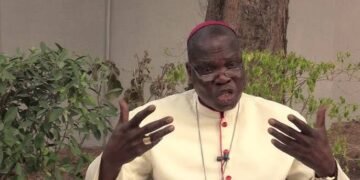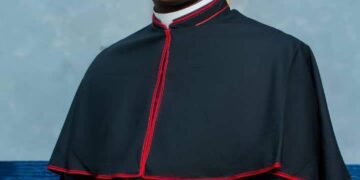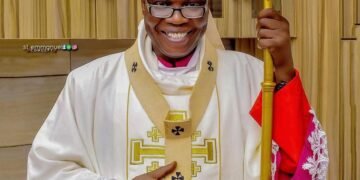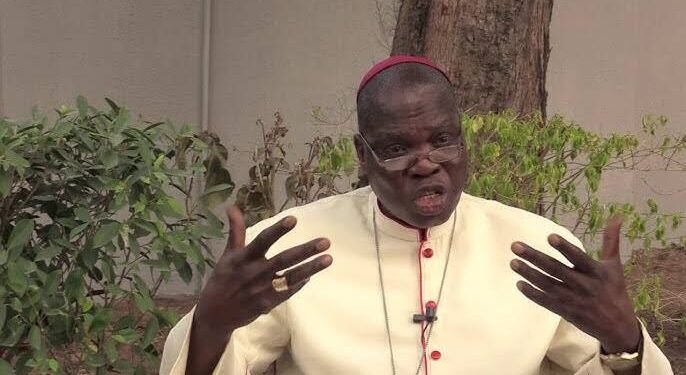By Charles Igwe
The Catholic Bishops of Kaduna Ecclesiastical Province (KEP) have called on President Bola Ahmed Tinubu to reconsider his abrupt removal of the fuel subsidy, which they say has plunged Nigerians into economic hardship. The Bishops emphasized that reversing the policy would not be a sign of weakness but rather a demonstration of responsible leadership.
Speaking at the conclusion of the Second Plenary of the Kaduna Ecclesiastical Provincial Bishops’ session in Kaduna on Tuesday, KEP Chairman Archbishop Matthew Man-Oso Ndagoso acknowledged that while the subsidy had burdened the nation’s finances for the past 25 years and needed to be removed, the manner in which the president announced its removal had severe psychological and economic impacts on the people.
“We have had the subsidy for the past 25 years, and we all knew it was eating deep into the nation’s finances and needed to go. But the hasty manner in which the president announced the removal had serious implications for the people’s well-being,” Archbishop Ndagoso said. “People should have been given notice, for instance, that the subsidy would be reduced by 25% over the next six months, allowing for a phased removal alongside the provision of palliatives and other measures. It’s about the people—if the president spent 10 years removing the subsidy in phases without causing severe hardship, that would have been better.”
The Catholic Bishops also urged President Tinubu not to heed those who view the protests against the policy as an affront to his government. They stressed the importance of appointing competent Nigerians from across party lines to promote national cohesion.
“We propose that the president decongest the Presidential fleet, reconsider the idea of purchasing a new plane, and continue to tighten public expenditure,” the Bishops stated. “Looking inward, we encourage the president to collaborate with local industrialists to expand employment opportunities and promote self-sufficiency. In the medium and long term, the president should ban the use of foreign cars by all public officials.”
The Bishops believe these policies could inspire public confidence and urged politicians to engage directly with the people rather than relying on non-state actors for pacification. They also encouraged the president to focus on democratic ideals, build consensus, and avoid the temptation to search for enemies.
Archbishop Ndagoso highlighted the need for faith community leaders and civil society to enhance their advocacy skills, noting that the value of protests is linked to the strength of a society’s social fabric. “When we have a social fabric weakened by illiteracy, poverty, and corruption, these protests can provide a cure that is worse than the disease,” he cautioned. “So, we must seek other options for engaging the government as the need arises.”
Reflecting on the recent protests, Archbishop Ndagoso observed that they exposed the fault lines within the nation, including political, ethnic, regional, and religious differences. He noted that while a majority of Nigerians chose not to participate in the protests, the minority who did assert their rights without resulting in deaths or destruction, signaling a slow maturity in the country’s democracy.
On the issue of Russian flags being hoisted in Nigeria, Archbishop Ndagoso expressed his dismay, stating, “I felt insulted because Nigeria at Independence had the potential to become greater than most of these countries tagged as developed nations, but due to bad leadership, we are where we are today.”












































